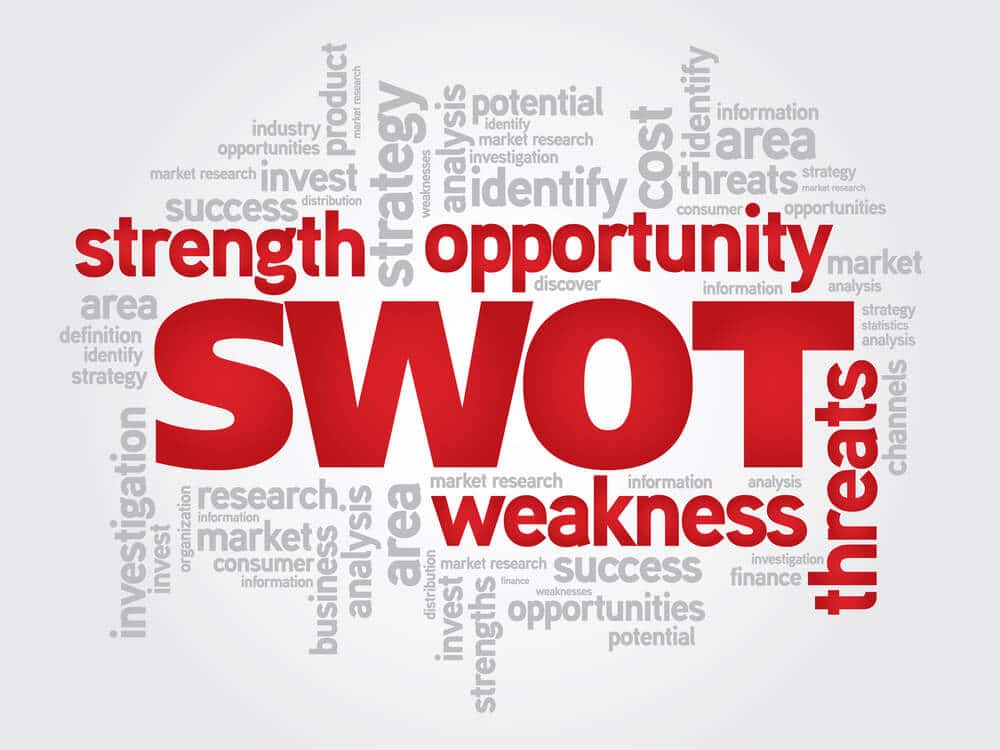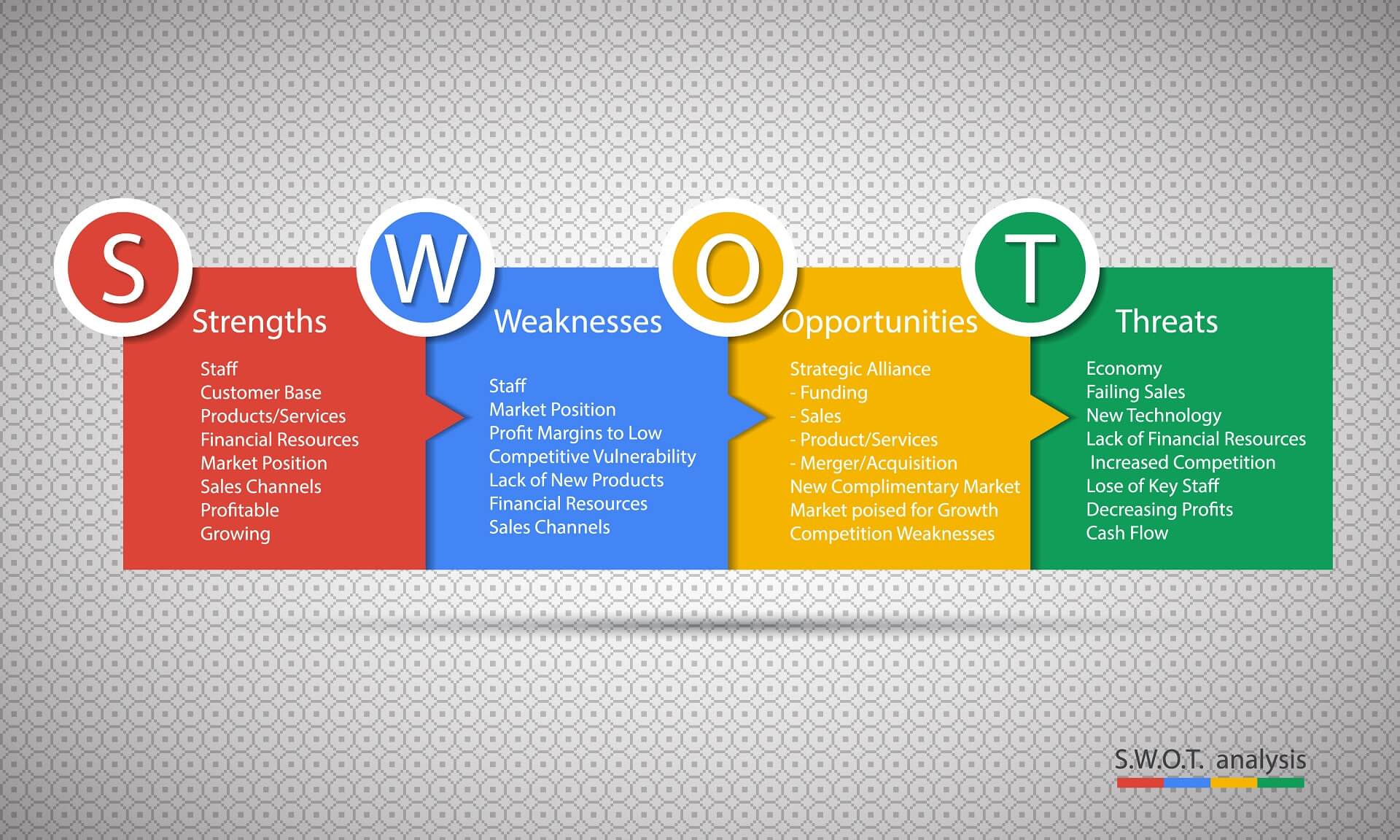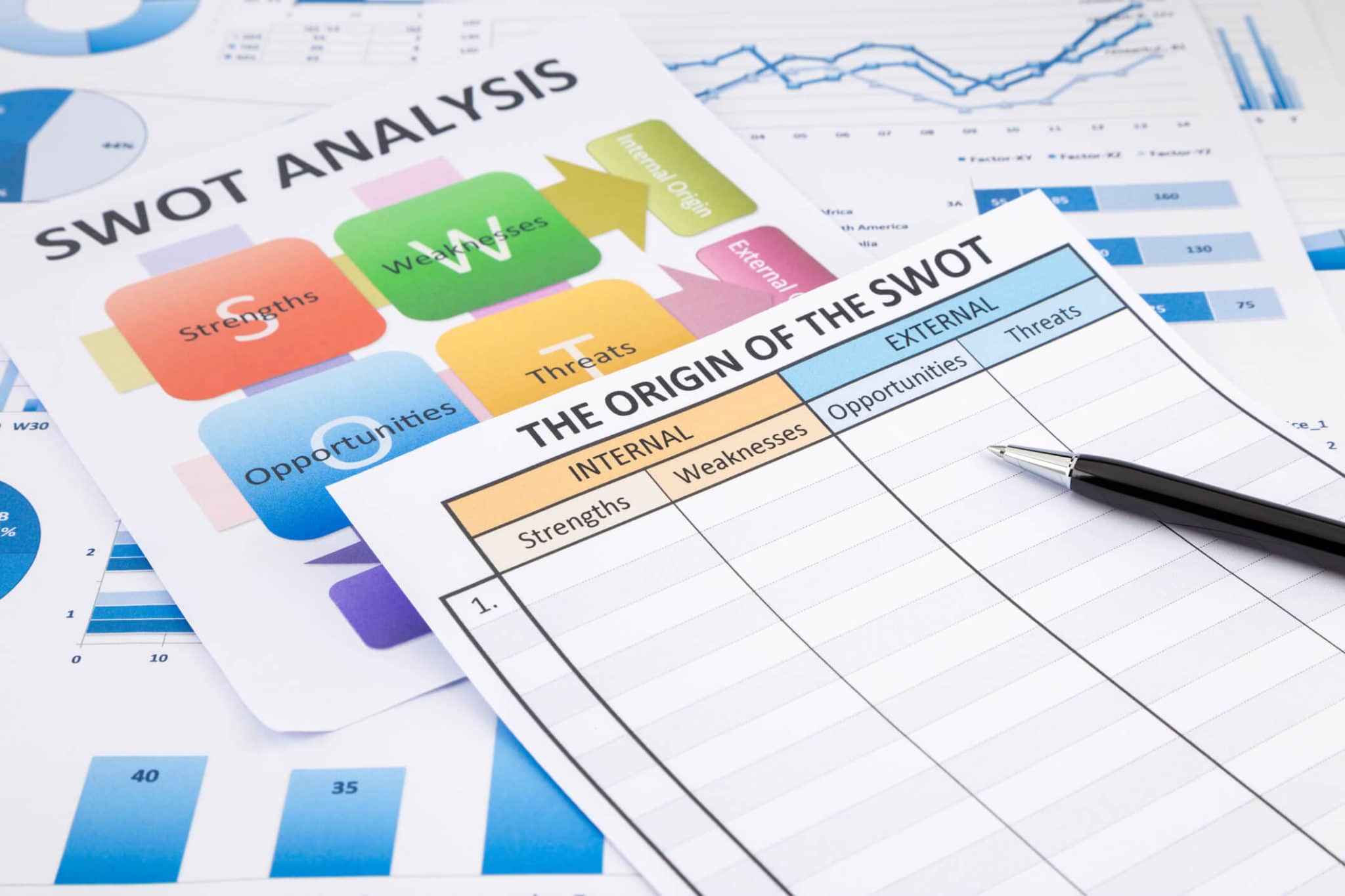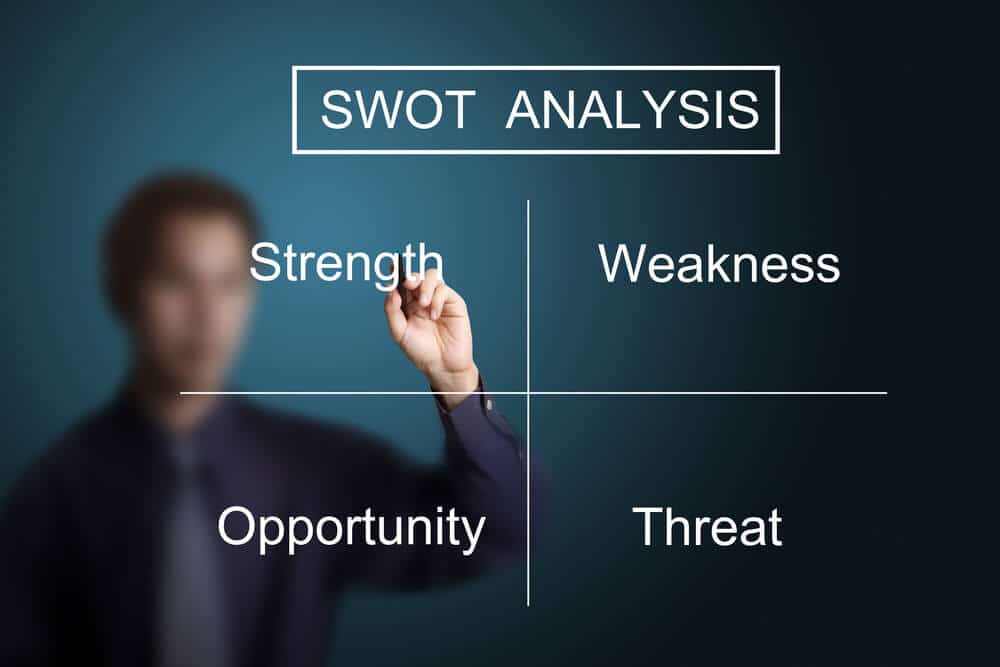If you're wondering what is a SWOT analysis, don't worry. It doesn't mean that the FBI or the police are doing an analysis of the situation! It actually has nothing to do with SWAT in that sense, because that particular SWAT is s.w.A.t.. The SWOT that we're talking about and referring to is s.w.O.t., which stands for strengths, weaknesses, opportunities, and threats.
While you might still think this has something to do with the police, and local law enforcement, in fact, it has to do with marketing and business. This is a research term that a company might use if they're thinking about questioning another company's motives, or their style of getting business.
For example, if you're working at Blockbuster, and you want to know where the competition is coming from, you might want to do a SWOT analysis on Netflix. This is exactly what happened a few years ago but unfortunately for Blockbuster, they did their analysis a little too late.

So, What is a SWOT analysis Exactly?
A SWOT analysis is the breakdown of a company based on what we describe in the reviews and information we find about them online or elsewhere.
First, you would look at their Strengths. What is the strong area of a company, or where are all of their strengths? If Blockbuster was looking at Netflix, they would have known that Netflix was strong because Netflix started investing in streaming content; that means movies that you could watch online. You probably watched a few of these movies already. You probably watch them through Netflix also, because they did their homework ahead of time to know that this is what people want. That was their selling point.
You see, back in the nineties, Blockbuster was still renting movies. They would welcome you into a store where you'd rent movies. You could also rent movies by having a movie snail-mailed to you. These were sent in the form of CDs or DVDs. The problem was that a lot of people complained about standing in line at Blockbuster stores. They also complained that they had to wait a few days before the movie arrived in the mail. As Netflix knew about this trend, Netflix played on Blockbuster's weaknesses; that's the W in SWOT analysis.
What Netflix did, was to listen to customers' complaints about the waiting lines. They didn't want to wait for DVDs to come in the mail. Since Netflix could offer movies online, this was an advantage over Blockbuster's business.
Opportunities came in - that's the O in SWOT analysis - when Blockbuster started losing money because people were switching over to Netflix. When people realized that they could get all the movies that they wanted online, they abandoned ship at Blockbuster.

The last part of the SWOT analysis is Threats. This is not where someone at Blockbusters called up someone at Netflix and threatened them. It's about Netflix strategically looking at what the threat would be if they chose to do a business like Blockbuster.
They knew that Blockbuster was a threat because they were trying to do a similar service; they would let people get DVDs. At the same time, they had to sell a service in a way that people would want to buy it. That's why they started giving unlimited movies for $7.99 per month. They had targeted a specific audience; those who wanted to watch movies and play games online. A lot of people didn't want to go and look for a Blockbuster, or order movies. Sometimes the movies' discs had scratches; the CDs and DVDs didn't work at all.
That’s a good form of analysis. Keep in mind that any company can use a SWOT analysis. If for example, you are Pizza Hut and you want to start a new pizza store, you have to do a SWOT analysis of the competition. That would be Domino's, Papa Johns, and other pizza places in your area.

What is a SWOT analysis Used For?
Now that you know what is a SWOT analysis, let's see what a SWOT analysis is used for.
As we discussed, a SWOT analysis can help companies to better organize their own marketing and their own way of setting up a business. It's similar to looking at another type of business that already exists. It may even have a larger target audience already. Let's look at another example.
If Target wants to move into an area where there's a Walmart located, they have to do a SWOT analysis. Remember it's all about strengths, weaknesses, opportunities, and threats. That means that before they even decide if they're going to move into a neighborhood close to where the Walmart is located, they have to do this analysis first.
When we say analysis, it's really a lot of reports that are done; and meetings. The goal is to do research and generate reports about:
- Traffic;
- the number of sales that come into a store; and
- the types of products that they sell.

Say Target consider moving to an area where a Walmart is located. For them to do it correctly, they might do it based on price because Walmart sells things that are at the lowest price. Target may try to target a different area. They may try to reach out to the middle class or those people who may not want to go to Walmart all the time. They may also need more expensive items as they have a little bit more money to spend. They may also want more quality in the items they buy.
That means the next time that you think about a store that might move into your neighborhood, make sure you ask yourself: what is a SWOT analysis for that store? Then ask whether or not it would be a good deal and then look for the deals! Remember, each store is there for a reason and they’re all competing with one another.










